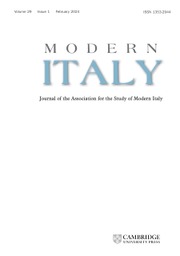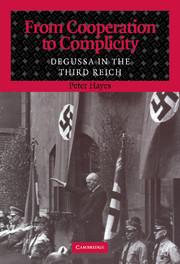Industry and Ideology
The power of big business in the economy of the Third Reich remains one of the most important issues of that era. Drawing upon research, much of it in German corporate and government archives, Peter Hayes argues that IG Farben Chemicals, the largest corporation in Nazi Germany, proved consistently unable to influence national policy outside the narrow sphere of the firm's expertise. Indeed, as Hayes shows, the most infamous aspects of Nazi policy - the Third Reich's armaments and autarky drives during the 1930s, Germany's advance toward war, the pillaging of Europe, the exploitation of slave and conscript labor, and the persecution of the Jews - occurred despite IG Farben's advocacy of alternative courses of action. Nonetheless, Farben grew rich under the Nazi regime and was directly involved in some of its greatest crimes.
- Draws upon prodigious research, much of it in German corporate and government archives
- Studies the power of big business in the economy of the Third Reich, which remains one of the most important issues of that era
- Well-written and carefully researched, sets the standard for future examinations of the relationship of business and the Nazi state
Reviews & endorsements
"Hayes's long-awaited, splendid study of Germany's chemical giant in the Nazi era is of critical importance and puts the study of big business under the Nazis on a new, solid foundation in the English-speaking world." Choice
Product details
November 2000Hardback
9780521781107
450 pages
229 × 152 × 29 mm
0.83kg
7 b/w illus. 2 maps
Available
Table of Contents
- Part I. The Nascent Concern, 1860–1933:
- 1. Origins and organization
- 2. The search for stability
- Part II. The National Revival, 1933–6:
- 3. Revolution and reflation
- 4. From Schacht to Göring
- Part III. The Nervous Years, 1936–9:
- 5. Autarky and atomization
- Part IV. The Nazi Empire, 1938–44:
- 6. Greater Germany
- 7. The New Order
- Part V. The Nature of War, 1939–45:
- 8. Commerce and complicity
- Epilogue.








.jpg)
.jpg)




